
We could easily get lost in the imagination of gadget and product trends of the future. From flying cars to trips to Mars being just as common as a flight to Florida for vacation, Hollywood has given us plenty to dream about.
In reality, though, it’s far more likely that our innovations in the near future will be much closer to home, though SpaceX has many of us thinking otherwise. In order to dream big, we have to begin with thinking (and creating) small.
While the past few years have been all about AI and putting it everywhere we can (including in the cloud!), 2020 will turn a corner into the humanization of technology. The consumer doesn’t just want to interact with a device or product. We want that technology to interact with us, too. Our devices shouldn’t just do what we want; they should be doing what we want before we even ask.
At the same time as we have a push in the boundaries between human and machine, the consumer has an ever-growing desire for transparency, accountability, and responsibility from brands. This extends to not only the new products they share with the public but how they’re using the consumer to improve.
All of this ties in perfectly to the big surge in global connectivity. With the SpaceX Starlink satellites and 5G on the horizon, everyone will soon be connected to everyone everywhere. And with large trends like this, it becomes easier to predict product trends.
Global connectivity
We’ve already seen 5G become a reality across multiple networks. It’s setting a new standard for seamless on-the-go connection for everyone. At the moment, 5G is limited. Verizon, AT&T, Sprint, and T-Mobile are all vying for the top choice for consumers. However, they’re rolling out 5G city by city, with plans for access for one billion users sometime in 2023. 5G won’t entirely replace 4G, but the fast connectivity opens up the options for smartphones, computers, smart devices, and just about every tech niche.
On the other hand, SpaceX is looking to connect the rest of the world in a different way. Launching Starlink satellites into orbit, their goal is to bring internet access to everyone on the planet. While the launches have already been given a green light, SpaceX says the broadband service will officially begin in 2020.
Leaps and bounds in smartphone innovation
While the majority of the world is focusing on the foldable feature for smartphones, perhaps a more likely progression will be in a different direction. After all, current foldable devices haven’t started off with the best track record. From faulty functionality to being called ugly, it seems we’re still not on track for a fully-foldable future as far as product trends are concerned.
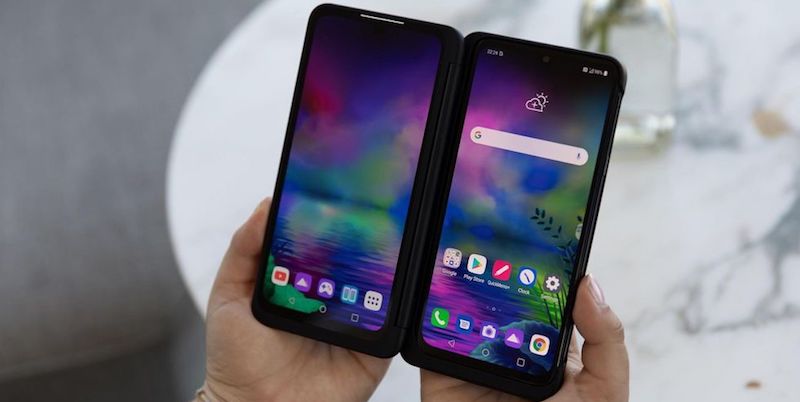
LG G8X ThinQ Smartphone with a dual-screen and foldable design
However, another exciting niche in smartphone design is dual-screen devices, like in the LG G8X ThinQ. They’re remarkably useful, whether you want to use your device for work or gaming. And as far as functionality, it seems far more stable than foldable designs. Dual-screen devices will apply a design that is already in use, albeit in a different way. We’re assuming more brands will hop on this trend.
And, obviously, smartphone cameras are only going to improve. In fact, it’s already rumored that the Galaxy S11 will feature an exposure time of up to 30 seconds and an ISO of 3200. This is going to allow for exceptional performance in low-light conditions and allow for more creativity from users.
Smart home gadgets of 2020
With connection getting stronger, devices will be faster, smarter, and better equipped to handle more tasks. In 2020, you can expect to find more niche products. We’ll see smart home devices that solve minor annoyances and inconveniences.
Kitchen devices are sure to become more automated. Gone are the days of frozen meals, but that doesn’t mean the consumer doesn’t want convenience. Meal delivery kits may make it easier, but smart kitchen gadgets that can actually cook the food on their own will complete the process. The desire of the 2020 consumer will be to have home-cooked meals without doing any of the cooking.
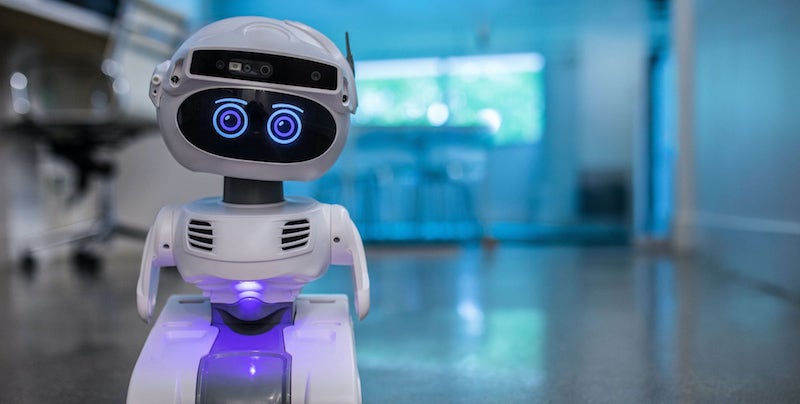
Misty II Personal Robot can express emotion for better interaction
As far as cleaning, we already know the abilities of smart robot vacuums. Perhaps 2020 will bring one that can also mop and switch between the two automatically. With such impressive sensors, we expect we’ll see a smart vacuum that can expertly spot-treat stains, a process that currently takes human intervention.
Artificial intelligence gets more intuitive
We already know that AI is here to stay; it’s practically everywhere already. But where this technology will truly excel is becoming smarter at a faster rate. As these systems learn faster, they can better predict our needs and desires. From there, it’s a very simple step to predicting the things we didn’t even know we needed. AI systems will be telling us information before our brains can even get to that point.
With this ability, it’s a no brainer that AI will continue to infiltrate more products in the tech world. Imagine your car forever learning about your wants and needs. You won’t even need to set scenes for your smart home.
The robots are coming
In the past few years, personal robots have all but died. We saw countless brands of all sizes rise to the occasion, giving us hope that we could all have our very own butler. The majority of them didn’t pan out, and most of us resided to waiting for updates from Boston Dynamics (who can resist those videos?!) and Sophia.
However, while they didn’t pan out for our homes in the past, they have certainly panned out in other industries. The healthcare industry is one of them, but so is retail and the military. You may even see one wandering around your local supermarket.
As far as 2020, we’re going to see brands take another crack at personal robots. There a number of robots that are already available, just like Misty II getting a modern update. However, the robots of next year will be better equipped to serve us thanks to that boost in AI.
A focus on health tech
With the news that the Apple Watch can accurately detect atrial fibrillation, it’s clear the future of health products is in the self-service niche. We’re moving beyond fitness tracking and calorie counting. Apple has already announced they’re adding more metrics into their health tracking, including women’s health, movement, and hearing.
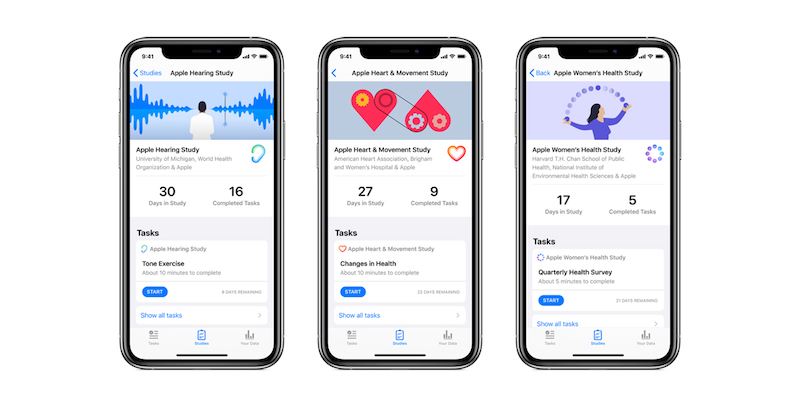
Apple’s recently announced Research app for women’s health, movement, and hearing
2020 is going to bring even more intelligence to the health wearable and device field. We’ll be able to perform medical tests on our own and get results in nearly real-time. Beyond that, product creators are going to be giving in to the consumer’s need for instant gratification. While results from health tests and exams take days to return, 2020 will be all about delivery and real-time access to medical professionals. It’ll probably cost a pretty penny, but who can put a price on your health?
AR, VR, and mixed reality
This is possibly one of the most exciting areas of technology innovation; the consumer just can’t get enough. These headsets have officially become a household device as there are more experiences added. But, there will always be the ever-growing need for more realities.
And, you can bet those experiences will become more seamless. Brands will be improving the devices to set new standards across the board. Apple is already rumored to be in the process of creating their own AR headset, though the rumors and leaks say it won’t arrive until 2021 at the earliest.
And it won’t just be about seamless experiences. The consumer is already craving more substantial experiences. With Jurassic Park already available, the only way to go is bigger and grander. We imagine virtual reality will extend to interaction with celebrities and some personalization options in the experiences. With celebrities already doing Cameo, it’s possible AR and VR will be next.
Drones of the future
Bigger isn’t always better, especially when size can directly affect battery life. Consumer drones are already getting smaller and smaller, but we’re predicting these smaller sizes will be complemented by better batteries and more powerful cameras.
And, with smaller sizes, we expect there will be a shift to modular designs. Moment, the maker of smartphone lenses, has already released add-on accessories for drone cameras. But what if additional add-ons were available for bigger batteries and stronger motors? It’s absolutely a possibility. The result would be drone pilots swapping out modules based on their needs, rather than being limited to drone’s abilities.
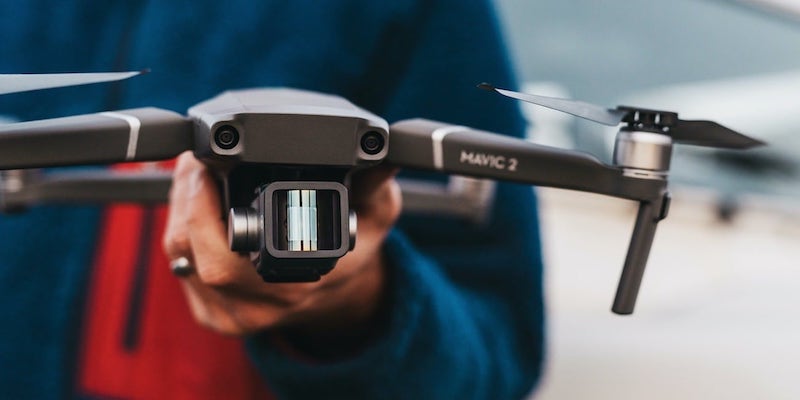
Moment Air Anamorphic Drone Accessories allow for modular customization
Along with power and ability, we’ll see an increase in accessibility. Not just for the drone pilot, but for the entire industry. DJI has already announced allowing smartphone users to know the location, direction, speed, and altitude of drones they see in the sky. DJI says it’s all about enhancing safety and security.
Going green
In 2020, we can expect a pretty good insurgence of green-based systems like smart home gardens and solar-powered (and -gathering) devices. Tesla put accessible home solar on the map with the Powerwall and it’s going to become the norm.
There are also countless crowdfunding campaigns already entering the green market and other small brands are also moving in that direction. Eco-friendliness isn’t just a selling point, it’s becoming the new norm for brands of all sizes. Just look at Apple using only recyclable materials in their newer devices.
Next year, we’re going to see even more brands taking a solid stance on eco-friendly materials, methods, and functions to make your home greener than ever. You can expect smart devices that help us grow our own food as well as store our own food to make it last longer.
Disconnecting from technology
Even with such a big push for more technology (like we see every year), there’s an ever-growing desire to be disconnected (while remaining connected). We’ll see trends of products like smartwatches and speakers bridging the gap between those two worlds.
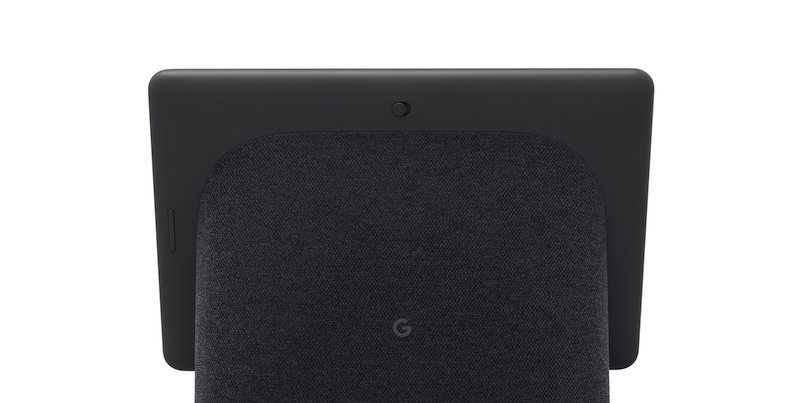
The mic and camera kill switch on the Nest Hub Max
We’ve already seen a certain level of control with privacy through microphone and camera kill switches like on the Nest Hub Max. We can certainly expect to see this feature appear in more devices including smart speakers, smart cameras, and even our personal devices.
Remote work product trends
With all the connectivity we have on our disposal, working remotely is an obvious next step for much of the world’s workforce. We already have smart video calling devices like Facebook Portal. At the same time, we’re seeing numerous studies saying that working from home can be helpful for productivity. Put these ideas together and we can assume 2020 will bring more innovation for working from everywhere.
As far as product trends, this will include more communication systems, longer battery life for our laptops and devices, and more 4G (and maybe even 5G) hotspot devices. Likewise, in the non-tech space, we can expect products like backpacks to incorporate remote work-friendly features with more storage and convenience. Perhaps they’ll even offer their own connectivity.
Design improvements
For many devices and gadgets, the technology is already there. However, part of the innovation process includes creating a concept and then a viable product with only the technology as a focus. The product creators that enter through the crowdfunding world are particularly aware; successful campaigns need at least a working prototype to even begin funding.
As a result, these concepts become a reality with bulky and cumbersome designs. When successful functionality is the goal, design falls to the wayside. Apple is typically the goal when it comes to modern product design, although they’re already making changes, as we can see with the MacBook 16-inch, to fit in with consumer desires.
But in 2020, you can expect more streamlined design aesthetics for a variety of technologies we already have. As plenty of the technologies are perfected, designs will only continue to improve. Internal components will get more compact, meaning the creators can design with aesthetics in mind.
Next-level wireless chargers
While wireless charging has been the norm for some time, 2020 will be the year it really starts to take off with more convenience. As of now, you can charge your iPhone 11 Pro with a cable in two hours and it can get to 50% in 30 minutes. Wirelessly, you’re looking at about four hours for a full charge.
As we only begin to use our devices more, our needs for faster chargers will only increase. This doesn’t just fall on wireless chargers, though. Even with the best charger, the device needs to be compatible. Smartphone manufacturers need to step up to make compatible devices. In the wired vs. wireless, wired will always when it comes to speed. But, with better-equipped devices, we’re hoping to see the specs of Fast Charge technology extend to wireless, too.
Of course, expecting something as fast as 50% in 30 minutes without a cable in just a year’s time seems lofty. But lofty goals are what drive innovation.
Product trends in 2020
Phew – there’s clearly a lot to look forward to when it comes to gadget, tech, and product trends for the next year. While we can’t know the exact course of innovation, that’s all part of the excitement. We can’t wait to see what else creators and innovators come up with. At the very least, we’re going to have a clearer picture of the future of technology after CES 2020.

